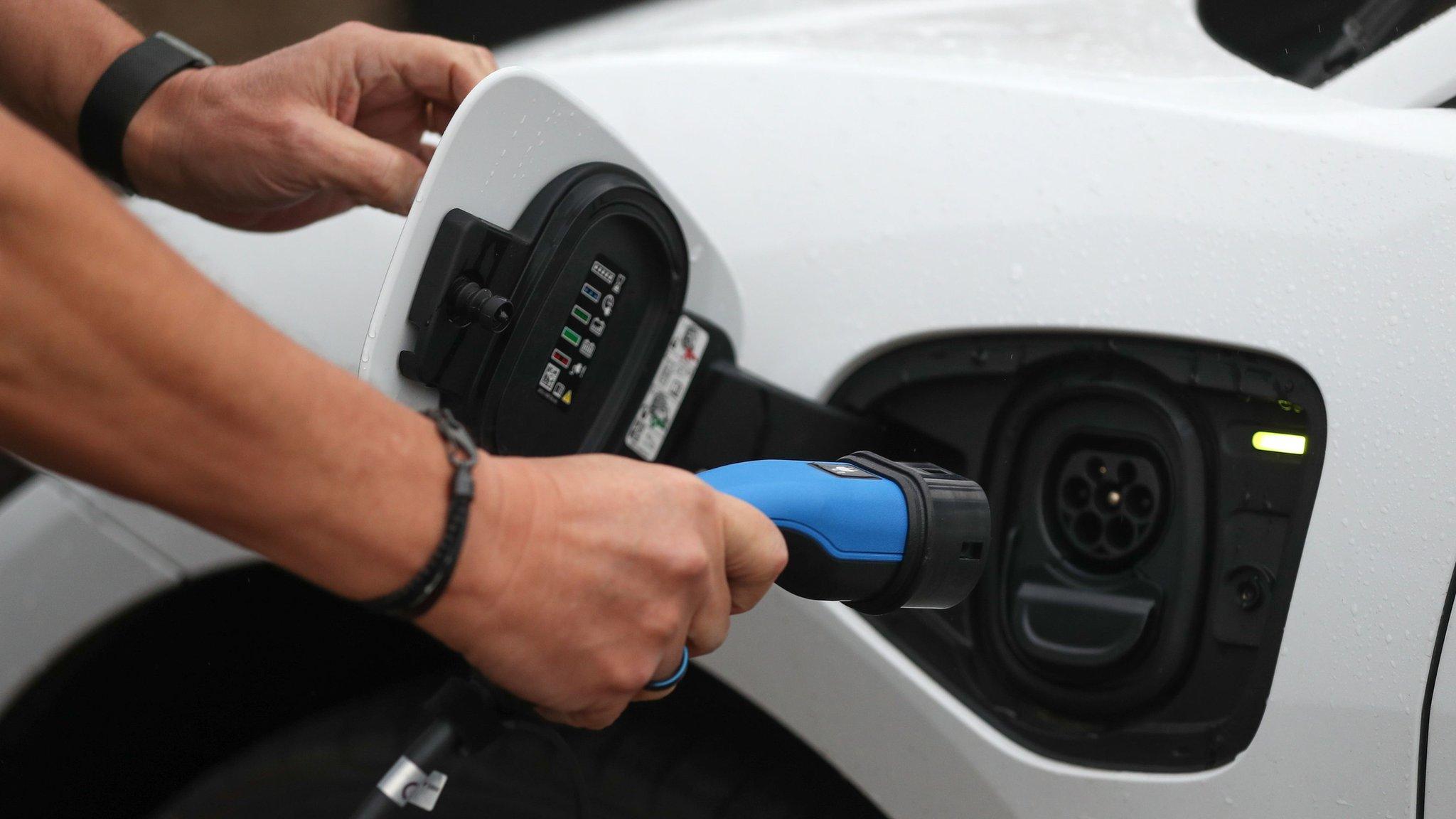Electric vehicles: Lack of NI car chargers blamed on grid connection costs
- Published
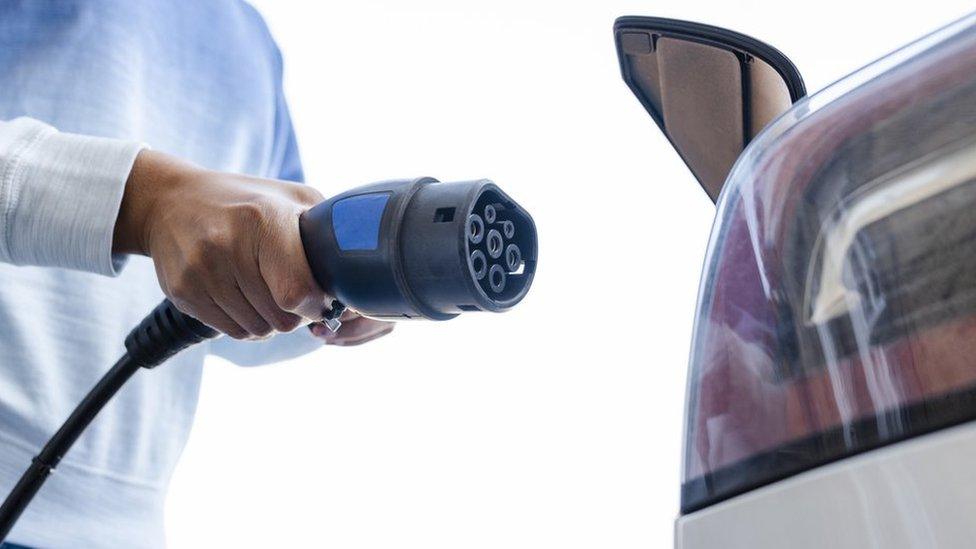
The Government had planned to phase out the sale of all new petrol and diesel cars by 2030
An electric motoring group says grid connection costs are to blame for the state of Northern Ireland's poor charging infrastructure.
Last week Prime Minister Rishi Sunak announced a delay on the ban of new petrol and diesel vehicle sales.
BBC Spotlight has been investigating some of the problems prompting the U-turn.
The Department for the Economy said a change to the connection costs could lead to increased electricity bills.
The UK government had planned to phase out the sale of all new petrol and diesel cars by 2030 in an effort to meet net zero emissions targets.
Those plans have now been pushed back until 2035, with the prime minister blaming the cost of living and saying the need to ensure the charging infrastructure was "truly nation wide".
Northern Ireland's public charging infrastructure is lagging behind the rest of the United Kingdom, with 23 chargers available per 100,000 people.
UK-wide figures show there is an average of 66 chargers per 100,000 people.
There are 12.6 rapid chargers available per 100,000 people across the whole of the UK.
However, in Northern Ireland there are just three rapid chargers per 100,000 people.
'Grid connection costs are to blame'
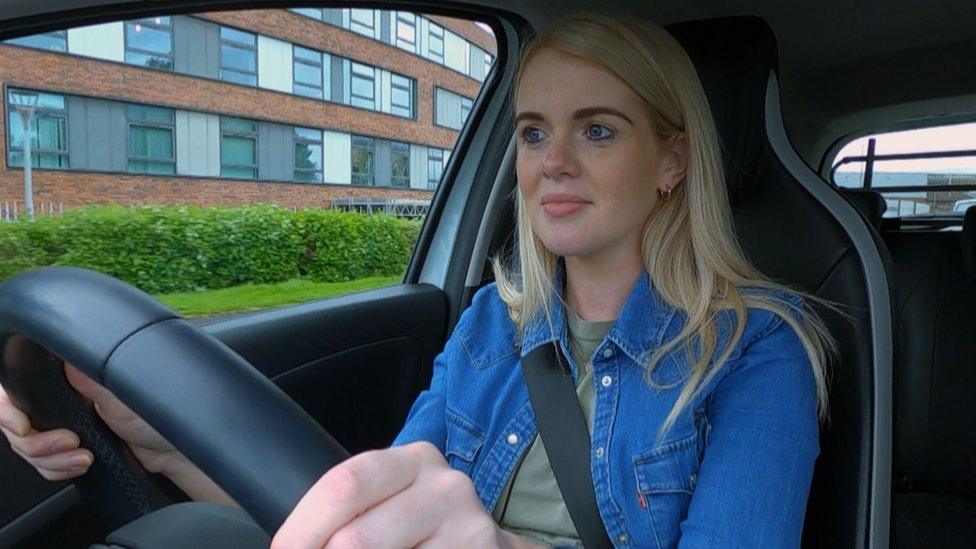
Jude McMurray from the Electric Vehicle Association of Northern Ireland
Jude McMurray from the Electric Vehicle Association NI (EVANI) said bringing grid connection costs into line with Britain would encourage investment in charging.
She said it is currently "very difficult for charge operators to actually set up a viable business model in Northern Ireland".
Thomas O'Hagan is the Co-founder of Weev, a car charging company, which is investing £20m in the network here.
He said the cost of upgrading grid connections to accommodate powerful chargers "could be anywhere between three to 10 times" more expensive than it is in Britain.
"We are having to pay for the full network upgrade, whereas in GB their policy is that the operator only has to pay for the connection and not the upgrade of the network," he said.
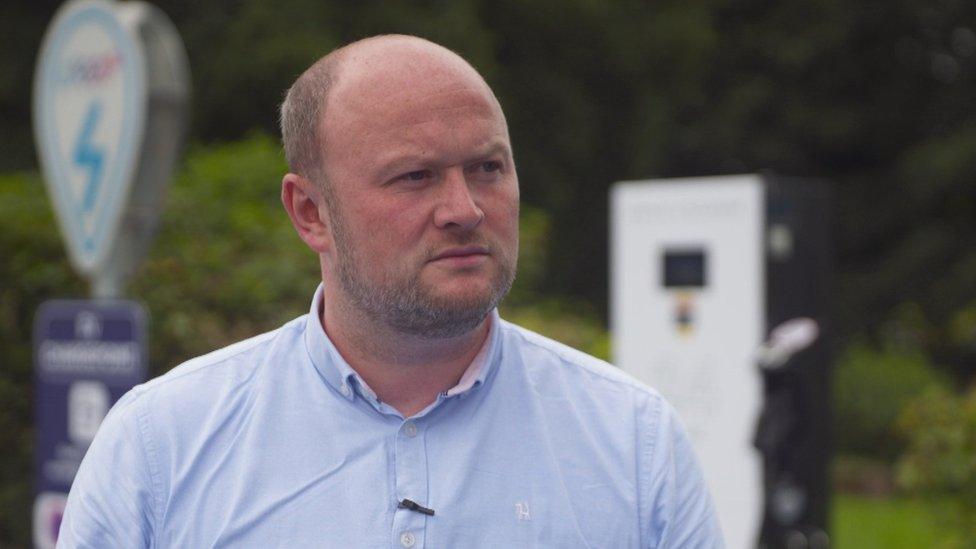
Thomas O'Hagan, co-founder of Weev
Northern Ireland Electricity (NIE), which is responsible for power connections, said it had advocated for a review of charging to align with neighbouring regions.
In a statement, the company said: "As it's policy, the decision ultimately sits at government level."
The Department for the Economy told Spotlight any reduction in costs for investors would likely mean having to spread the cost across domestic and business bills.
The Utility Regulator said having to spread the cost would have a greater impact on bills in Northern Ireland than it does in the rest of the UK.
A call for evidence, external on a grid connection policy is open until 29 September.
EVANI also claimed a government department had failed to spend money which could have been put towards improving the charging network.
Ms McMurray said £7m of the £20m Blue/Green fund, which was earmarked for travel projects, had gone unspent.
The Department for Infrastructure said it had "canvassed widely" for projects and the need to ensure value for money was reflected in the final expenditure.
It added that charger infrastructure development is a commercially led project.
The department said an electric vehicle taskforce had set out key actions, external to improve the infrastructure and it was working with the private sector to deliver those.
Tyre emissions higher in electric car
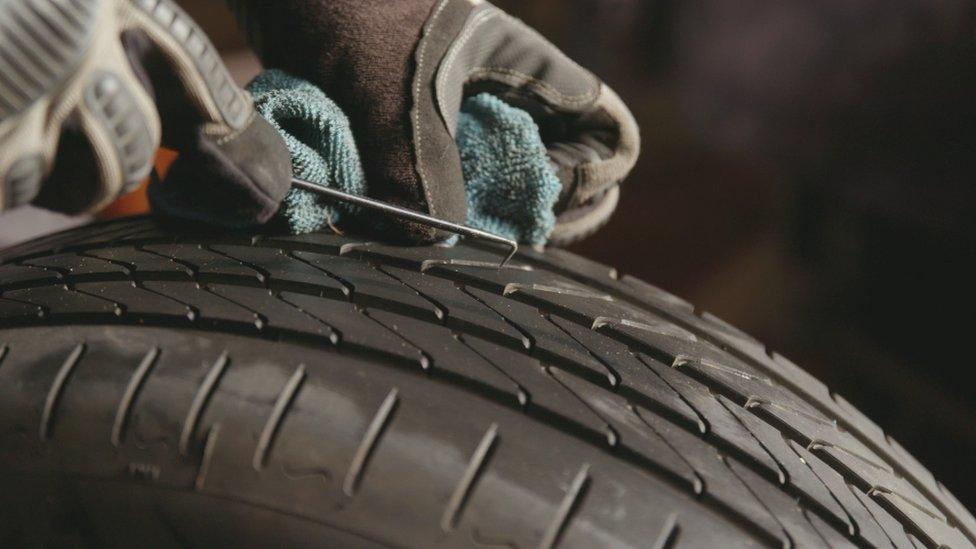
Experts compared the tyre emissions between an electric and diesel vehicle
BBC Spotlight also found an electric car was less environmentally friendly than a diesel car in one of a series of emissions tests conducted by experts.
In an experiment for the programme, two cars were driven on a 260-mile trip around every county of Northern Ireland.
The electric car produced fewer CO2 emissions - a 'greenhouse' gas that, in excess in the atmosphere, causes climate change - than the diesel.
Even with the CO2 emissions relating to its production and generating the electricity to power the vehicle taken into account, it will generate 53% less CO2 over a 160,000km lifespan.
However, the electric car was found to have produced more particulates, which include tiny pieces of rubber being shredded from the tyres while driving.
The experts who carried out the tests for Spotlight, Emissions Analytics, said that was due to greater wear from the tyres on the electric car.
The company's chief executive Nick Molden said: "Everyone knows their tyres wear. That's actually an emission, in a similar way to [those from] a tailpipe.
"And because battery vehicles are heavier, you get these higher tyre emissions in use."
'Spotlight: The Electric Road Test' is available to watch now on the BBC iPlayer.
Related topics
- Published20 September 2023
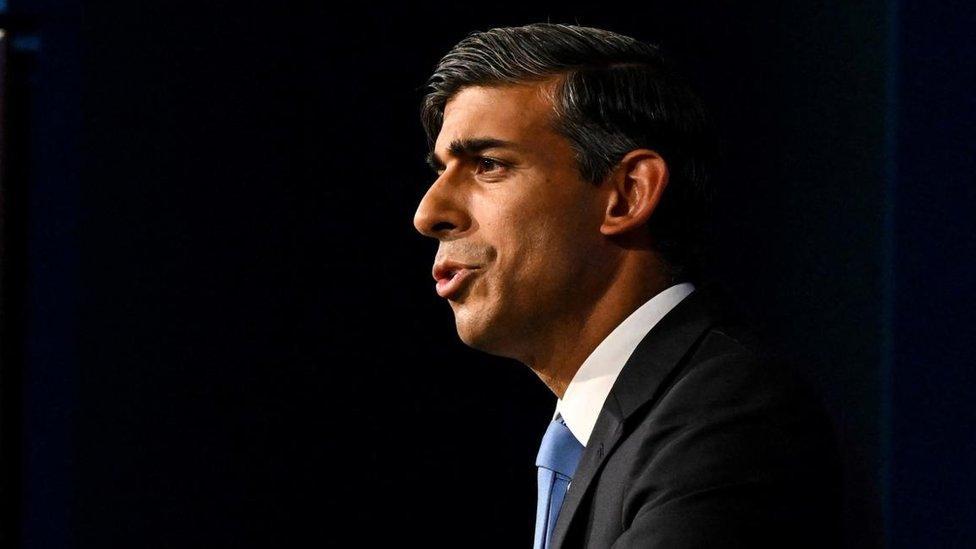
- Published17 November 2021
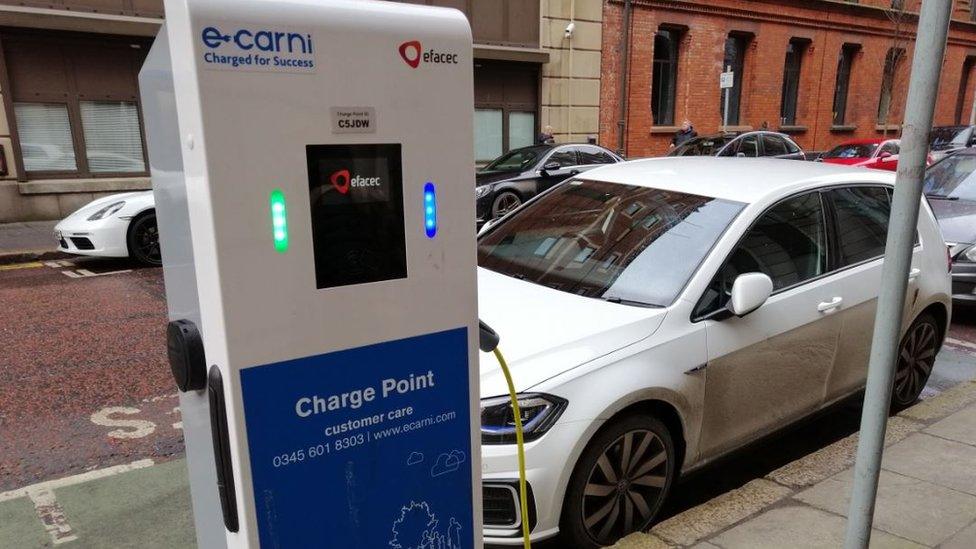
- Published16 December 2021
